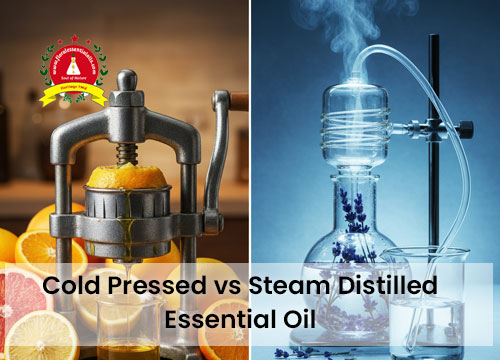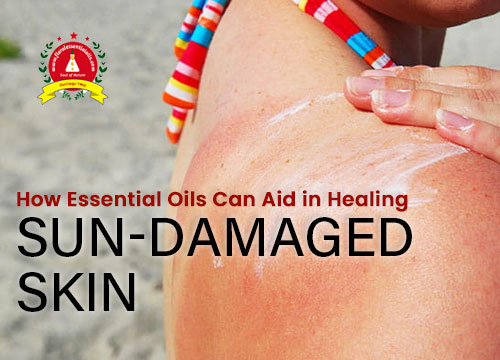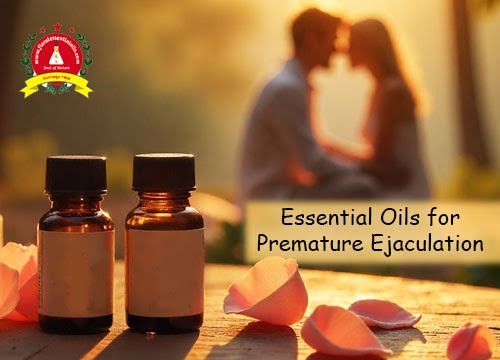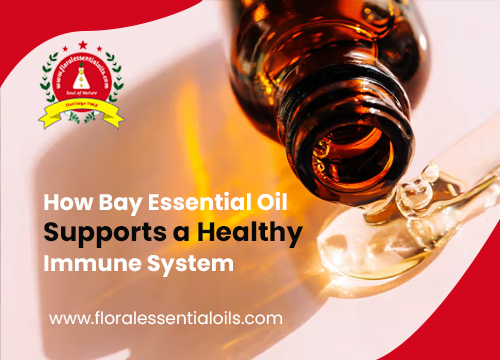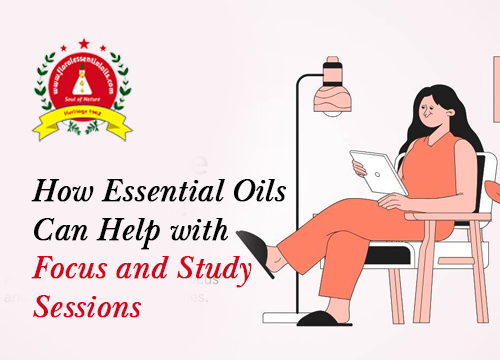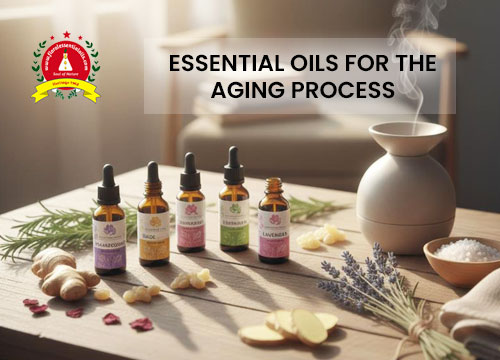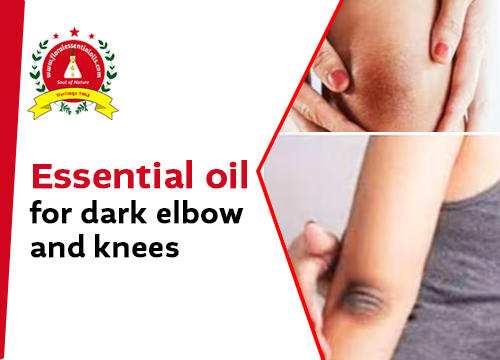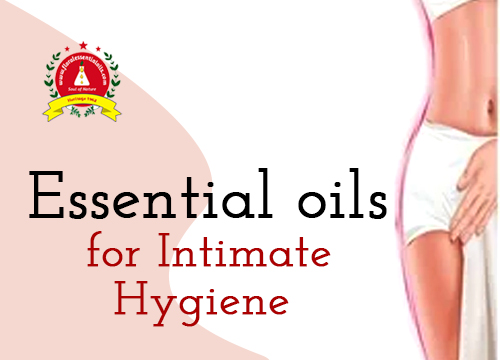Essential oils have gained enormous popularity in wellness, healing, and aromatherapy, but choosing between cold pressed vs steam distilled essential oils can significantly impact their quality. These concentrated plant extracts are remarkably potent—about 80 times more concentrated than dried herbs. In fact, it takes an astonishing 4 million jasmine buds to produce just one pound of pure jasmine oil.
When we look at the difference between cold pressed and steam distilled essential oils, the extraction method becomes a crucial factor in determining their ultimate quality and efficacy. Steam distillation, which has been widely used for a long time, is generally considered superior for producing pure, stable, and highly aromatic oils. Meanwhile, cold pressing offers excellent results for certain plant materials, particularly citrus oils. Consequently, steam-distilled oils tend to be more stable and less prone to oxidation, giving them a longer shelf life—an important consideration for both personal use and commercial products.
As the demand for essential oils continues to grow rapidly across wellness, cosmetic, aromatherapy, and pharmaceutical industries, understanding these extraction methods becomes increasingly important. Whether you’re looking for oils to enhance your natural beauty routine, address skin concerns, or simply enjoy their aromatic benefits, we’ll help you understand which method might be best suited for your specific needs.
Understanding the Extraction Methods
The extraction method serves as the foundation for essential oil quality. Two primary techniques dominate the industry: steam distillation and cold pressing, each producing oils with distinct characteristics.
Steam Distillation: How It Works and What It Extracts
Steam distillation represents the most widely used essential oil extraction technique. This process begins by passing steam through plant material, which vaporizes the volatile aromatic compounds. These vapors travel through a cooling system where they condense back into liquid form. The essential oil, being less dense than water, naturally separates and floats to the top (though heavier oils like clove may sink instead).
For optimal results, steam distillation requires precise control over temperature (typically 140–212°F), pressure (15-20 PSI), and time (ranging from hours to days). This method from plant materials. Steam distillation works exceptionally well for herbs, flowers, and woody materials, producing oils with remarkable purity due to the absence of solvent contamination extracts approximately 93% of essential oils
Cold Pressing: Mechanical Process for Citrus Oils
Cold pressing (also called expression) functions entirely differently. Rather than using heat, this mechanical process applies pressure to extract oils—primarily from citrus peels. During cold pressing, the fruit peel undergoes mechanical abrasion or pricking that ruptures the tiny oil sacs located in the rind. The resulting mixture of oil, juice, and pulp then undergoes centrifugation to separate the pure essential oil.
This method preserves heat-sensitive compounds that might otherwise degrade, maintaining the fresh, vibrant aroma profile characteristic of citrus oils. However, cold-pressed oils typically contain more waxes and residues than their steam-distilled counterparts.
Why Extraction Method Matters for Oil Purity
The extraction technique directly influences an oil’s chemical composition, therapeutic properties, and aromatic profile. Steam distillation yields exceptionally clean oils with minimal impurities but may alter heat-sensitive compounds. Conversely, cold pressing maintains the oil’s natural state but produces oils prone to oxidation with shorter shelf lives.
than other extraction methods in laboratory testing. Furthermore, the extraction method affects which compounds predominate in the final product, ultimately determining the oil’s practical applications.Steam distilled oils demonstrated higher antifungal efficacy
Benefits of Steam Distilled vs Cold Pressed Oils
Each extraction method delivers unique advantages depending on what compounds you value most in your essential oils.
Nutrient Retention: Heat-Stable vs Heat-Sensitive Compounds
Steam distillation excels at preserving heat-stable compounds like terpenes and sesquiterpenes, although some delicate molecules may alter during heating. Alternatively, cold pressing retains a broader spectrum of since no external heat is applied.heat-sensitive vitamins, antioxidants, and enzymes
Aroma Profile: Deep Herbal vs Bright Citrus Notes
Steam distilled oils typically offer more refined, concentrated aromas that sometimes differ from the fresh plant material. In contrast, cold pressed citrus oils maintain bright, zesty characters that closely resemble fresh fruit peels.
Shelf Life and Oxidation Resistance
Steam distilled oils demonstrate , typically lasting 2-3 years when properly stored. Cold pressed oils, especially citrus varieties, contain higher limonene content making them more susceptible to oxidation, generally maintaining quality for 1-2 years.superior stability and oxidation resistance
Skin Safety: Phototoxicity and Sensitivity Considerations
Perhaps most importantly, cold pressed citrus oils often contain furanocoumarins that cause phototoxicity—creating severe skin reactions when exposed to UV light. These molecules bind to skin cell DNA under sunlight, causing cell death resembling burns. Notably, steam distilled citrus oils typically lack these compounds as furanocoumarins cannot pass through the steam distillation process.
Key Differences Between Cold Pressed and Steam Distilled Oils
The fundamental distinction between cold pressed and steam distilled essential oils lies in their extraction principles, affecting everything from their composition to their therapeutic uses.
Extraction Process: Heat vs No Heat
Steam distillation operates , whereas cold pressing maintains temperatures below 120°F. This temperature difference is critical—steam causes volatile compounds to evaporate, while cold pressing physically releases oils through mechanical pressure without altering their molecular structure at temperatures between 140-212°F
Best Plant Types for Each Method
Cold pressing works exclusively with citrus fruits like orange, lemon, and bergamot, whose peels contain large oil sacs easily accessed through mechanical pressing. Alternatively, steam distillation excels with flowers (lavender, rose), herbs (rosemary, thyme), roots (ginger, vetiver), and woody materials (sandalwood, cedar). The versatility of steam distillation makes it on the market suitable for approximately 95% of essential oils
Chemical Composition and Therapeutic Potency
Cold pressed oils contain a wider spectrum of compounds, including heat-sensitive components and non-volatile substances like waxes and pigments. Steam distilled oils primarily extract monoterpenes, sesquiterpenes, and other volatile compounds, creating a more refined composition.
Cost and Availability in the Market
Cold pressed citrus oils are typically more affordable as they’re often byproducts of juice production. Steam distillation requires specialized equipment—boilers, condensers, and separation tanks—making the initial investment higher, though the concentrated yield offsets some costs.
How to Choose the Right Oil for Your Needs
Selecting the ideal essential oil requires matching the extraction method to your specific application. Beneath the botanicals lies a world of chemical differences that determine which oils work best for your needs.
For Skincare: Cold Pressed Citrus vs Steam Distilled Lavender
Cold pressed citrus oils excel in brightening skin routines through their naturally high vitamin C content. For example, and hyperpigmentation. Additionally, cold-pressed orange oil stimulates collagen production, reducing fine lines.cold-pressed lemon oil effectively lessens dark spots
Despite these benefits, remember that cold-pressed citrus oils are phototoxic—apply them only at night and wash off by morning. For sensitive or irritated skin, steam-distilled lavender or tea tree oils provide better options, offering anti-inflammatory and antimicrobial support without photosensitivity risks.
For Aromatherapy: Scent Strength and Diffusion
Cold pressed citrus oils deliver uplifting, energizing qualities with immediate psychological effects that improve mood. Nevertheless, these vibrant aromas typically serve as top notes, fading more quickly.
Specifically, steam distilled oils like lavender and eucalyptus maintain better staying power, providing lasting middle and base notes in aromatherapy blends. When diffusing, consider the oil’s “odor intensity” (rated 1-10) to achieve balanced blends—stronger oils like frankincense (rated 7) may require fewer drops than milder oils like lavender (rated 5).
For DIY Essential Oil Distiller Users: What to Consider
Before attempting home distillation, understand that extracting oils requires substantial plant material—sometimes hundreds of pounds for minimal oil. Copper equipment yields superior results through its natural antibacterial properties.
Following distillation, proper storage becomes crucial—use only stainless steel or dark glass containers with tight-fitting caps. Throughout the process, prioritize safety by working outdoors or in well-ventilated areas while using appropriate protective equipment.
Label Reading Tips: Identifying Extraction Method and Purity
Authentic essential oil labels should clearly specify:
- Latin botanical name and plant part used
- Country of origin and extraction method (“steam distilled” or “cold pressed”)
- Batch/lot number for traceability
- 100% purity statement (with no additives or fillers)
Beware of misleading marketing terms like “therapeutic grade” which lack standardized meaning. Instead, look for oils with comparable pricing to similar products—unusually inexpensive oils often indicate adulteration.
Comparison Table
| Characteristic | Cold Pressed Oils | Steam Distilled Oils |
| Extraction Temperature | Below 120°F | 140-212°F |
| Suitable Plant Materials | Primarily citrus peels | Herbs, flowers, roots, woody materials (95% of essential oils) |
| Process Method | Mechanical pressure/abrasion | Steam vaporization and condensation |
| Oil Purity | Contains more waxes and residues | Minimal impurities, cleaner oils |
| Shelf Life | 1-2 years | 2-3 years |
| Oxidation Resistance | More prone to oxidation | Superior stability and oxidation resistance |
| Phototoxicity Risk | Yes (contains furanocoumarins) | No (furanocoumarins removed during process) |
| Compound Retention | Preserves heat-sensitive vitamins, antioxidants, and enzymes | Preserves heat-stable compounds like terpenes and sesquiterpenes |
| Aroma Profile | Bright, zesty, resembles fresh fruit | Refined, concentrated, may differ from fresh plant |
| Market Cost | Generally more affordable | Higher initial investment, offset by concentrated yield |
| Extraction Yield | Not mentioned | Approximately 93% of essential oils from plant materials |
| Best Applications | Skincare (vitamin C content), mood enhancement | Aromatherapy, therapeutic uses, antimicrobial applications |
Conclusion
Both cold pressed and steam distilled essential oils offer unique benefits depending on your specific needs. Steam distillation clearly stands as the more versatile method, extracting pure oils from approximately 95% of plant materials including herbs, flowers, roots, and woody substances. Additionally, these oils demonstrate superior stability, longer shelf life, and freedom from phototoxic compounds that might cause adverse skin reactions.
Cold pressing, though limited primarily to citrus peels, excels at preserving heat-sensitive compounds like vitamins and enzymes that would otherwise degrade during steam distillation. Therefore, cold pressed citrus oils deliver bright, vibrant aromas closely resembling fresh fruit while offering excellent skincare benefits through their naturally high vitamin C content.
The choice between these extraction methods ultimately depends on your intended use. For skincare routines requiring brightening effects, cold pressed citrus oils work wonderfully—albeit with careful attention to their phototoxic nature. Conversely, steam distilled lavender or tea tree oils provide better options for sensitive skin conditions without photosensitivity risks.
Aromatherapy enthusiasts might prefer cold pressed oils for their immediate mood-enhancing properties, while those seeking longer-lasting scents would benefit from steam distilled varieties. Undoubtedly, understanding these fundamental differences allows you to make informed decisions when purchasing essential oils for wellness, beauty, or therapeutic applications.
Whether you choose cold pressed or steam distilled oils, quality remains paramount. Always check labels for botanical names, extraction methods, and purity statements. The perfect essential oil for you balances extraction method benefits with your specific wellness goals—making the journey through aromatic botanicals both effective and enjoyable.
Key Takeaways
Understanding the extraction method is crucial for choosing the right essential oil for your specific needs and ensuring optimal results.
• Steam distillation produces purer, more stable oils with 2-3 year shelf life, suitable for 95% of plant materials including herbs and flowers.
• Cold pressed citrus oils retain heat-sensitive vitamins and bright aromas but are phototoxic and oxidize faster (1-2 year shelf life).
• For skincare, use cold pressed citrus oils at night only due to phototoxicity; steam distilled lavender/tea tree are safer for sensitive skin.
• Steam distilled oils offer superior aromatherapy longevity as middle/base notes, while cold pressed provide immediate mood-boosting top notes.
• Always verify labels for botanical names, extraction method, and 100% purity statements to ensure authentic, high-quality essential oils.
The key is matching extraction method to application: steam distilled for therapeutic stability and safety, cold pressed for fresh citrus benefits with proper precautions.
FAQs
Q1. What are the main differences between cold pressed and steam distilled essential oils? Cold pressed oils are extracted mechanically from citrus peels without heat, while steam distilled oils are obtained by passing steam through plant materials. Cold pressed oils retain more heat-sensitive compounds but have shorter shelf lives, while steam distilled oils are purer and more stable.
Q2. Which extraction method is better for skincare applications? It depends on your needs. Cold pressed citrus oils are great for brightening skin due to their vitamin C content, but they can cause photosensitivity. Steam distilled oils like lavender or tea tree are safer for sensitive skin and don’t pose phototoxicity risks.
Q3. How long do cold pressed and steam distilled essential oils typically last? Cold pressed oils generally have a shelf life of 1-2 years, while steam distilled oils can last 2-3 years when properly stored. Steam distilled oils have superior oxidation resistance, making them more stable over time.
Q4. Are steam distilled essential oils more effective for aromatherapy? Both types have their place in aromatherapy. Cold pressed citrus oils provide immediate mood-boosting effects with bright top notes. Steam distilled oils often have better staying power, offering lasting middle and base notes in aromatherapy blends.
Q5. How can I ensure I’m buying high-quality essential oils? Look for labels that clearly specify the Latin botanical name, country of origin, extraction method, and a 100% purity statement. Be wary of unusually low prices, which may indicate adulteration. Authentic oils should have batch numbers for traceability and avoid misleading terms like “therapeutic grade.”
